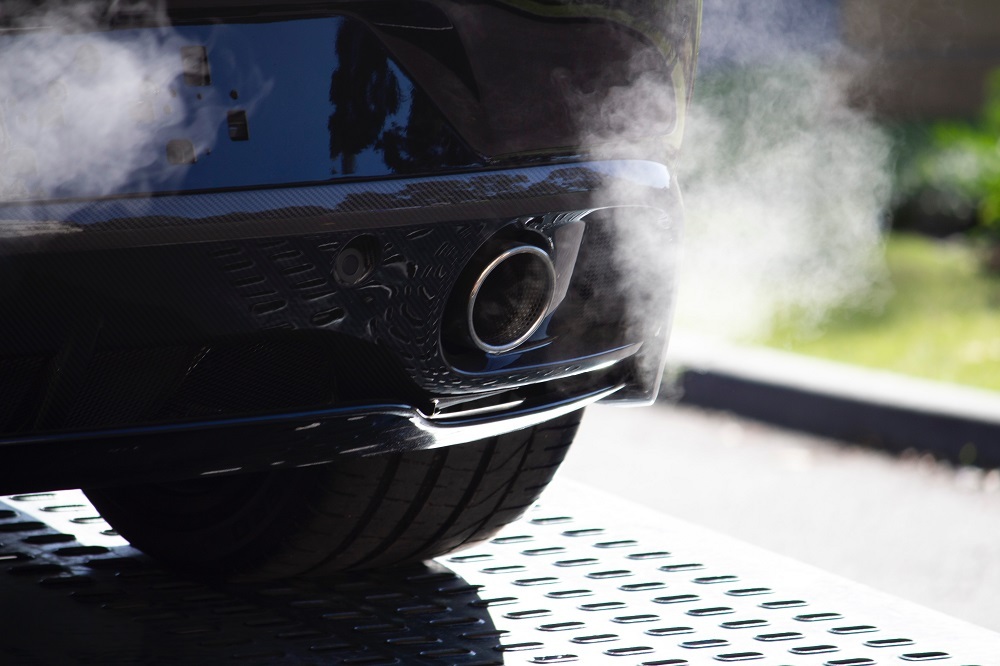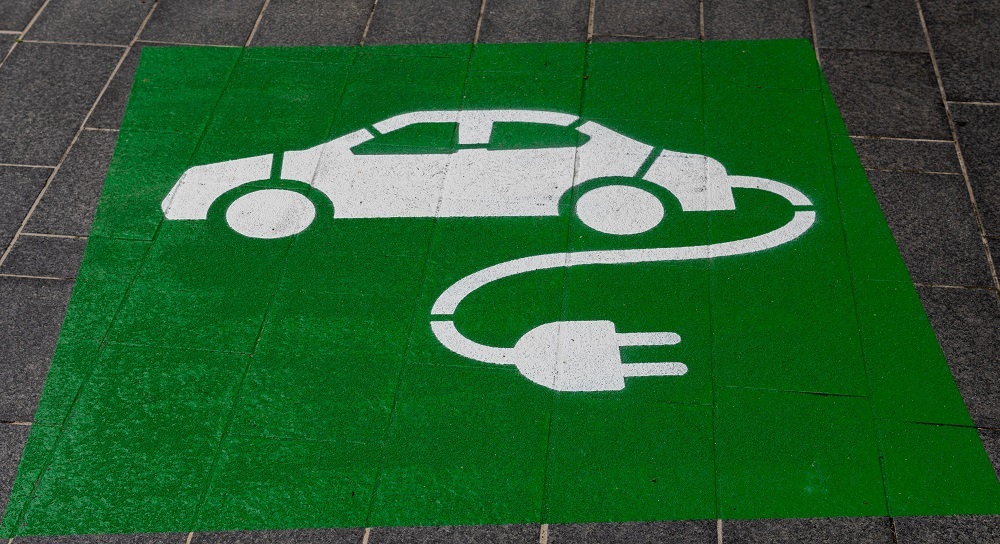
Eco-Friendly Driving: How to Reduce Your Carbon Footprint
In an age where climate change and environmental conservation are at the forefront of global discussions, the concept of eco-friendly driving has never been more relevant. In today's article, we will look at how our driving habits contribute to our carbon footprint and how we can make conscious decisions to reduce it. We will also look at how DEKRA's services can assist in this endeavour. So let's get to it...
1. Understanding Carbon Footprint in Driving
A carbon footprint is the overall amount of greenhouse gases, primarily carbon dioxide, that is released into the atmosphere as a result of human activities. It serves as a measure of the environmental impact caused by our actions, specifically in terms of the quantity of greenhouse gases generated.
When it comes to driving, your carbon footprint is influenced by the amount of greenhouse gases emitted during the operation of vehicles. Since burning fossil fuels like petrol or diesel produces carbon dioxide, the more you drive, the greater your carbon footprint becomes. By driving less, using fuel-efficient vehicles, carpooling, or opting for public transportation, you can actively reduce your carbon footprint associated with transportation.

Photo Credit: Matt Boitor on Unplash
2. Eco-Friendly Driving Tips
- Drive Smoothly: Avoid rapid acceleration and deceleration. Smooth, steady driving is more fuel-efficient.
- Reduce idle time: If you will be waiting in your car for at least a minute, it's more efficient to turn off the engine and restart it when you're ready to go.
- Maintain a steady speed: Driving at a constant speed is more fuel-efficient than varying your speed. Use cruise control on highways to maintain a steady speed.
- Carpool or use public transportation: By sharing rides or using public transportation, fewer vehicles are on the road, leading to less overall emissions.
- Choose routes wisely: Opt for routes that minimise travel distance and time. Avoid routes with heavy traffic or lots of robots and stop signs, which can lead to more idling and stop-and-go driving.
- Keep your vehicle well-maintained: Regular vehicle maintenance, including checking tyre pressure, changing the oil, and replacing air filters, can improve fuel efficiency and reduce emissions.
- Limit use of air conditioning: Air conditioning can increase fuel consumption, so use it sparingly.
- Reduce weight: Extra weight in your vehicle can decrease fuel efficiency. Remove unnecessary items from your car to keep it as light as possible.
- Consider eco-friendly vehicles: If you're in the market for a new vehicle, consider a hybrid or electric vehicle, which can be more fuel-efficient and produce fewer emissions than traditional petrol or diesel vehicles.
Read: Fuel-saving tips to lighten your monthly spending
3. Importance of Regular Vehicle Maintenance
Regular vehicle maintenance is crucial for eco-friendly driving as it ensures your vehicle runs efficiently, thereby reducing fuel consumption and emissions. Here are some specific maintenance tasks that can improve fuel efficiency and reduce emissions.
- Tyre pressure checks: Under-inflated tyres can increase rolling resistance, which means your vehicle has to work harder and burn more fuel to move forward.
- Timing oil changes: Oil breaks down and can become contaminated with dust, dirt, and debris, which can increase engine friction and reduce fuel efficiency.
- Air filter replacements: A dirty air filter can restrict airflow to the engine, causing it to work harder and burn more fuel.
- Regular tune-ups: Tune-ups can help your engine run more efficiently and improve fuel economy.
- Fuel system cleaning: Deposits can build up in the fuel system, reducing its efficiency.
- Checking and replacing oxygen sensors: A faulty oxygen sensor can cause the engine to burn more fuel than necessary, reducing fuel efficiency and increasing emissions.
4. Transitioning to More Eco-Friendly Vehicles: Hybrid and Electric
-
Hybrid Vehicles
Hybrid vehicles represent a great step forward in eco-friendly driving. These vehicles utilise a combination of a traditional internal combustion engine and an electric motor, optimising fuel efficiency and reducing emissions. At lower speeds, the vehicle primarily uses the electric motor, conserving fuel and minimising emissions. When more power is needed, such as during acceleration or at higher speeds, the petrol engine kicks in. Some hybrids also feature regenerative braking, which captures energy during braking and uses it to charge the battery, further enhancing efficiency. The result is a vehicle that offers the range and convenience of a traditional car but with a smaller carbon footprint. By reducing fuel consumption and emissions, hybrid vehicles contribute to cleaner air and less environmental pollution, making them a more sustainable choice for personal transportation.

Image Credit: Photo by Michael Marais on Unsplash
-
Electric Vehicles
Electric vehicles (EVs) are at the forefront of eco-friendly driving, offering a host of environmental benefits. Unlike traditional vehicles that run on petrol or diesel, EVs are powered entirely by electricity, producing zero tailpipe emissions. This significant reduction in emissions contributes to cleaner air and less environmental pollution. The overall carbon footprint of an electric vehicle can be minimal, especially in regions where the electricity grid is powered by renewable energy sources. Even in areas where the grid relies on fossil fuels, EVs are generally more efficient than conventional vehicles and produce fewer emissions per kilometre. By driving an electric vehicle, individuals can reduce their personal carbon footprint, contributing to a more sustainable future and aiding in the fight against climate change. It's important to note that the electric vehicle market in South Africa is a growing one and that it is expected to steadily increase over the next five to ten years.
5. How DEKRA can help
DEKRA's vehicle inspections play a crucial role in ensuring that vehicles are running efficiently and safely, thereby contributing to reduced emissions. Our comprehensive checks cover various aspects of a vehicle, including the engine, brakes, tyres, lights, and exhaust system. By identifying and addressing potential issues, DEKRA helps to ensure that vehicles are in optimal condition, reducing the risk of breakdowns and accidents, improving fuel efficiency, and minimising harmful emissions.
In addition to our standard inspections, we also offer specialised services that can further enhance a vehicle's efficiency and safety. For instance, our technical inspection can identify defects that might not be immediately apparent but could lead to problems down the line. By addressing these issues early, vehicle owners can avoid larger problems and future costly repairs. On top of that, by ensuring that vehicles are running optimally, DEKRA's inspections can help reduce fuel consumption and emissions, further contributing to eco-friendly driving.

Photo credit: Nik on Unsplash
The journey towards eco-friendly driving is a collective effort that involves understanding our carbon footprint, adopting more sustainable driving habits, maintaining our vehicles regularly, and considering the transition to hybrid or electric vehicles. DEKRA's comprehensive vehicle inspections and specialised services play a vital role in this journey. As we navigate the road towards a more sustainable future, remember that each decision we make, no matter how small, can have a significant impact. Let's strive to make conscious choices that not only benefit us as individuals but also contribute to the well-being of our planet. Remember, your next vehicle inspection with DEKRA could be a step towards reducing your carbon footprint. Get in touch with us and book your next inspection today.